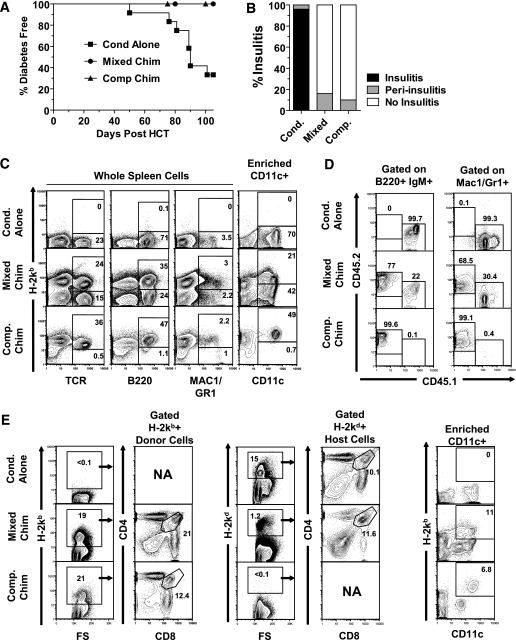FIG. 1.
Mixed and complete chimerism with MHC-mismatched BM transplants both prevented T1D in NOD mice. Wild-type NOD mice were conditioned with anti-CD3/CD8 (5 μg each) on days −10 and −5. On day 0, the conditioned mice were transplanted with graded doses of CD4+ TCD splenocytes and whole BM from wild-type C57BL/6 donors to induce chimerism (<20 × 106 each for the mixed, ∼50 × 106 each for the complete chimeras). Diabetes development was monitored weekly by both urine and blood glucose for up to 100 days. Thereafter, the recipient pancreas, spleen, BM, and thymus were harvested for evaluation of insulitis and chimerism status. There were 12 mice in each group combined from three replicate experiments. A: T1D development curve after HCT. B: Percent insulitis (n = 4–6). C: One representative spleen cell FACS profile of eight recipients examined with anti-H-2Kb in each group. For DC patterns, spleens were digested with collagenase D and enriched using CD11c microbeads. D: One representative FACS profile of four recipients in each group examined with anti-CD45.2 and anti-CD45.1 for donor- or host-type B220+IgM+ or Mac1+/Gr1+ cells in the BM. E: Representative FACS profile of four recipients in each group examined with anti-H-2Kb and anti-H-2Kd for donor- and host-type thymocytes.

